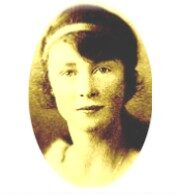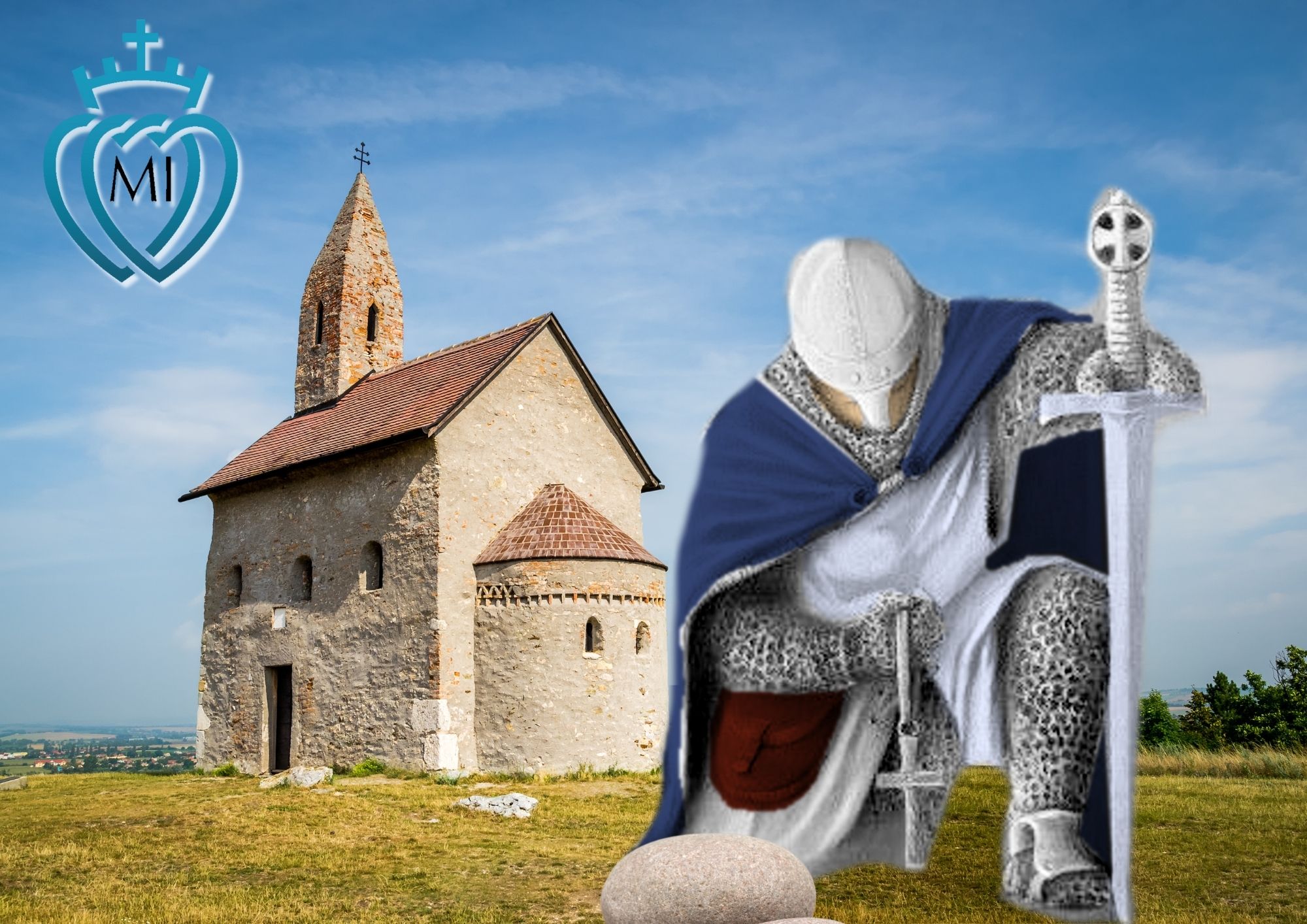La base de la MI
The basement of the M.I. is the individual, the knight himself, who personally and individually consecrates himself totally to the Immaculata and according to his state, the circumstances, and conditions of his life, uses all the legitimate means possible to obtain victory.
The holy founder allowed to each one the care to determine individually the degree of his consecration and his engagement according to his zeal and prudence. In this manner the M.I. knows no limits: each one can become a knight of the Immaculata, it is sufficient that he has, at least, the will to consecrate himself to the Blessed Virgin, and also to work for the salvation of souls.
One could believe that this degree of the M.I. is the lowest, an introduction so to speak, less strict and limited in the ideal. But it is none of that. Even if Fr. Maximilian addresses himself to every Catholic of good will, and concretely only asks of him the minimum to be a knight (to know how to wear the Miraculous Medal and to say the ejaculatory prayer of the M.I., which is not even under the pain of sin), he requests that the knight, in his personal life, develop all his talents, that he employs all the legitimate and possible means, that he may be consumed by “zeal for the house of God.” One sees in this, how wonderful is this idea, that the apostolate in the M.I. be left to the “zeal and prudence” of each one.
What does true zeal consist of?
Zeal impels us to act for our ideal, not in an ordinary way, but with energy, enthusiasm and ardor. Zeal is an inflexible will which goes straight to the goal, which does not get discouraged at the first obstacle, which does not shrink from sacrifices and wounds.
What does supernatural prudence consist of?
It consists of making a realistic and reasonable choice of the best means to reach the goal in the safest, fastest and best way. Prudence requires having an objective vision of the situation, it considers the concrete everyday life, with all its circumstances, its events, its duties, in order to then choose the best means of living total consecration, and of bringing the others to the Immaculata. The one, therefore, who understands the full meaning of the M.I. 1, sees what his mission consists of as an isolated combatant, who alone, without any human help, penetrates the ranks of the enemy. He is not only surrounded by enemies, he lives among them, “in the world, but not of the world”.

Even if he does nothing extraordinary, the others quickly realize that he is not like them, that he does not have the same principles, that he lives differently. This arouses their curiosity, and many are thus brought to faith. Others, perhaps the most numerous, are irritated, because it disturbs their peace of mind, which is only apparent. Such a man disturbs them, because he gives them a bad conscience. This is why he is marginalized, ridiculed, silenced, or worse. All this the knight takes upon himself. And as he is isolated, he must, because of his weakness, live in a particularly close union with the Immaculate, drink more than ordinary mortals at the source of graces, and flee the world, if he does not want not perish in danger. It is precisely this that supernatural prudence inspires in him.
The famous examples of our time show what such a pioneer is capable of: our saint himself, was he not at first such a solitary fighter? Some heroic figures such as St. Louis-Marie Grignion de Montfort, or more recently Edel Quinn, show to what degree of heroism an isolated knight of Our Lady can achieve. It is certainly not rash to assert that the founder of the Fraternity of St. Pius X, the apostle of Jesus and Mary, Archbishop Lefebvre, received from Mary, to whom he was entirely consecrated, the strength to resist practically all alone, the joint modernist forces.
But what does the combat of the pioneer of the M.I. 1 consist of?
Besides the general means mentioned above, his most important apostolate is that of good example. Every Knight of the Immaculate must consider those around him, his relatives, his acquaintances, his work colleagues, as a mission field, in order to win them all over to the Immaculate.
“Do not let yourself be discouraged by indifference and wickedness; the grace of God, through the Immaculate will be the strongest… You must win your home to the Immaculate, that is your field of action. Your weapons will be prayer, good example and kindness, above all a great gentleness and kindness, which are like a reflection of the goodness of the Immaculate.” Letter to a reader, 12.09.1924; BMK, p. 323.
A missionary tells us that one day a clever Hindu came to see him and expressed a desire to convert to Catholicism. The astonished priest asked him what prompted him to do so. He replied that for a long time he had not believed in the celibacy of Catholic missionary priests, but that he had convinced himself of them after observing them for a long time, and he thought that the Catholic religion must be true, if it gave such strength. This is still the case. People want to see Christian doctrine in action. (Conference of 13.02.1938; KMK, p. 205.)
The means of spreading the M.I, that is our life.
Saint Paul speaks to the faithful in these terms: “Be my imitators, as I am of Christ. ” Do like me. Each of us must do the same and cry out with Saint Paul: “Be perfect…” If not in words, at least in spirit, behave in such a way that everyone can imitate us, and this is how we sanctify ourselves. This is our greatest mission: to show by example what a Knight of the Immaculate is. (Lecture of 5.03.1939; KMK, p. 338.)
TO KNOW MORE ABOUT THE APOSTOLATE OF THE M.I.



